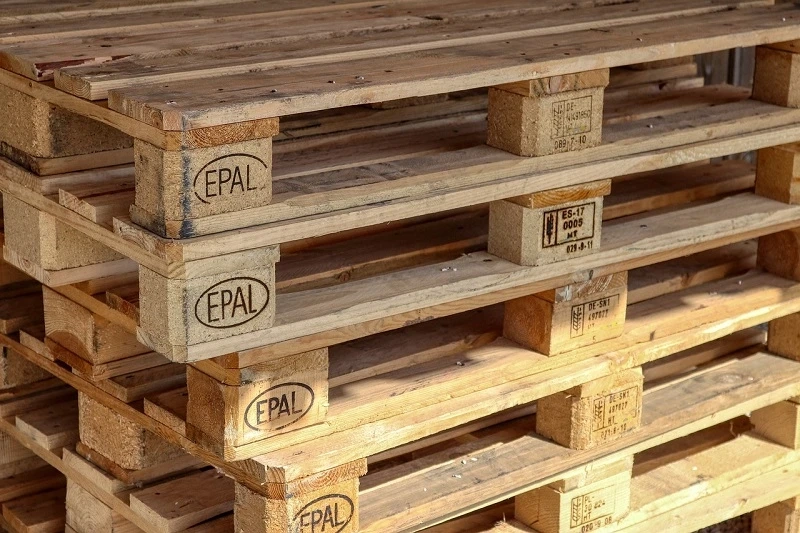It may seem such a simple item, but the humble wooden pallet plays a vital role in global supply chains and transportation. First introduced in the 20th century, the wooden pallet has cemented its place as the workhorse of industry, a vital product without which the system would break down. As such, what is occurring in the wooden pallet sector is of great interest to many other industries. The Covid pandemic, the Russian-Ukraine war and worsening global economic conditions have all impacted on wooden pallet pricing and supply chains in recent years. Overall, the forecast for 2023 is positive, with pallet prices expected to stabilise somewhat. Here, we predict three major trends that can be expected to emerge within the wooden pallet sector in the coming year.
Trend one: Increase in the use of reconditioned pallets
Every single business operating in 2023 is looking to reduce its carbon footprint and aiming to make its operations more eco-friendly. This drive for eco-efficiency has already sparked an increase in the importance of reconditioned wooden pallets and this is a trend that looks set to continue into 2023. You can find high-quality reconditioned wooden pallets for sale at trusted pallet suppliers. Focusing on the use of reconditioned pallets is a simple and effective way for businesses to reduce their carbon footprint too. It saves on trees being felled to create new wooden pallets but also reduces the energy needed to harvest, mill and heat treat them too.
Pricing is another factor expected to spark an increase in the use of reconditioned pallets. Amid soaring timber prices, many companies will increasingly turn to reconditioned pallets as a way to reduce costs. Add to this increased confidence in the viability and longevity of reconditioned pallets and you can expect this element of the wooden pallets industry to grow.
Trend two: Greater emphasis on the quality of wooden pallets for sale
Looking ahead, it is clear that automation is a key factor set to impact on the wooden pallet sector in the years to come. New robotic systems and intelligent handling systems are being created every day. And while for many companies, these are still far away in the future, some are already beginning to dip their toes into the water.
An increase in automated handling systems is likely to prompt higher demand for excellent quality wooden pallets for sale, engineered to stringent guidelines and tolerances. If pallets made beyond these tolerances are used within automated systems, the results could be disastrous, leading to breakdowns and delays within the handling systems. Pallet providers may have to work more closely with customers to ensure pallets are built and delivered to an exact standard, while customers are more likely to demand pallets that are regularly inspected and repaired if necessary.
Trend three: Cleaner wooden pallets
The Covid pandemic has increased everyone's awareness as to germs, hygiene and the importance of sanitisation. In 2023, expect to see a continuation of the trend for increased demand for 'clean' or heat-treated pallets. Manufacturers of wood packaging must meet the International Standards for Phytosanitary Measures 15 (ISPM15), a standard used around the world. It aims to prevent the transport and spread of diseases and insects that could cause illnesses to spread or disrupt ecosystems. Gaining ISPM15 certification means that wooden pallets have been heat treated and then stamped with a mark of compliance.
Not only is there an increased focus on ISPM15 due to concerns over cleanliness and the spread of diseases, but Brexit is also helping to drive a greater awareness of it. Since January last year, Britain's withdrawal from the European Union has meant that all timber used in packaging has had to be ISPM15 treated, whether it is being exported or imported in the European Union. Businesses need to be aware that this applies to any new wood added to a repaired or reconditioned pallet too.
While predicting the future, particularly in today's economically challenging times, is difficult, environmental concerns, cleanliness fears and the increase in automation are all key changes affecting the wooden pallet industry, which will impact its future direction and spark changes in the way pallets are produced and consumed.


